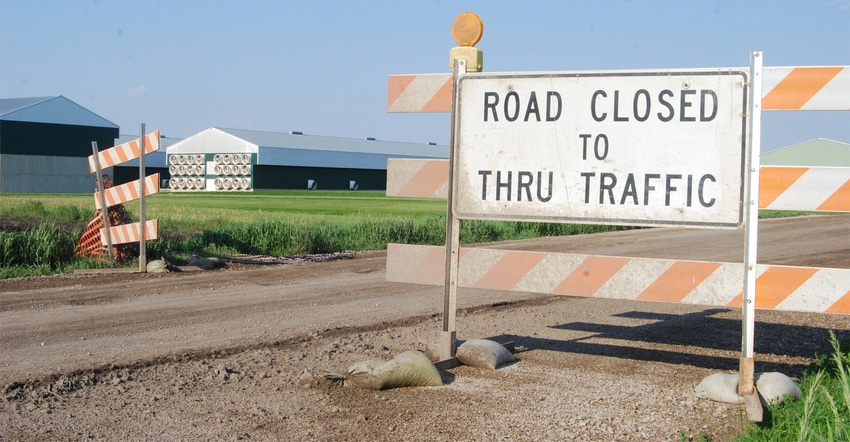
Are Iowa poultry producers vulnerable to an outbreak of avian influenza? This disease, known as bird flu, devastated Iowa’s egg-laying chicken flocks and its turkey farms two years ago. Although it hasn’t reappeared in Iowa yet, bird flu has shown up in some flocks in Tennessee and Wisconsin in March.
Answering the question about Iowa’s vulnerability, Iowa Secretary of Agriculture Bill Northey highlights the continued biosecurity efforts by Iowa turkey, egg and broiler farmers and the preparations undertaken on the state and federal level following confirmation of highly pathogenic avian influenza in Tennessee and low pathogenic avian influenza in both Tennessee and Wisconsin in the past week.
Highly pathogenic avian influenza (HPAI) virus strains are extremely infectious, often fatal to domestic poultry, and can spread rapidly from flock to flock. Low pathogenic avian influenza (LPAI) virus strains occur naturally in wild migratory waterfowl and shorebirds without causing illness. LPAI can occur in domestic poultry, with little or no signs of illness.
Northey points out, “Iowa saw firsthand the devastating impact of avian influenza in 2015, and in response, our poultry farmers have made significant investments and an ongoing commitment of increased biosecurity efforts to keep their chickens, turkeys and other birds healthy. We have also worked to learn from the 2015 outbreak to improve the response from both the state and federal government.”
Biosecurity important for farmers
Since the 2015 outbreak, Iowa poultry farmers have updated their biosecurity measures and made significant investments to help prevent the disease from getting on their farms, notes Northey. They focus every day on biosecurity, recognizing the potential that avian influenza and other diseases are always a risk.
All poultry farms need to have a biosecurity plan to qualify for USDA indemnification. It is also recommended all livestock premises that have one or more animals should obtain an official premises identification number, which may be obtained for free by contacting the Iowa Department of Ag and Land Stewardship (IDALS). Information on how to obtain premise identification is online at iowaagriculture.gov/animalIndustry/premiseIdentificationProgram.asp or by calling IDALS at 888-778-7675.
Iowa's egg and turkey companies have implemented company-wide biosecurity plans. The Center for Food Security and Public Health, Iowa State University Extension and ISU College of Veterinary Medicine have produced numerous materials to help farmers update biosecurity measures on farms. More information about their suggestions is at poultrybiosecurity.org.
State and federal preparations
In addition to the work by poultry farmers, state and federal partners have taken numerous steps to learn from the 2015 bird flu outbreak and prepare for any future outbreaks, says Northey.
The Iowa response to avian influenza operates under a unified command involving IDALS and the USDA Animal and Plant Health Inspection Service (APHIS) Veterinary Services. “We also work closely with partners in the poultry industry, as well as other state agencies,” he says, “including the Iowa Department of Homeland Security and Emergency Management, Iowa Department of Public Health, and Iowa Department of Natural Resources.”
Links for additional information
• Iowa Department of Agriculture and Land Stewardship
• USDA Animal and Plant Health Inspection Service
• Iowa State University Egg Industry Center
• USDA APHIS Biosecurity Information for Backyard Flocks
No guarantee it won’t hit Iowa again
“Everyone is rechecking their biosecurity plans,” notes Northey. “There is no guarantee to prevent this virus from getting into Iowa. Wild birds and waterfowl can carry it, and Iowa is in the path on the Mississippi Flyway for migrating ducks and geese. Everyone is concerned as producers continue the biosecurity plans they have in place. We are very hopeful we will be able to avoid a major outbreak of bird flu occurring in Iowa again. These new, recent outbreaks in Tennessee and Wisconsin re-emphasize the need for biosecurity.”
About the Author(s)
You May Also Like




